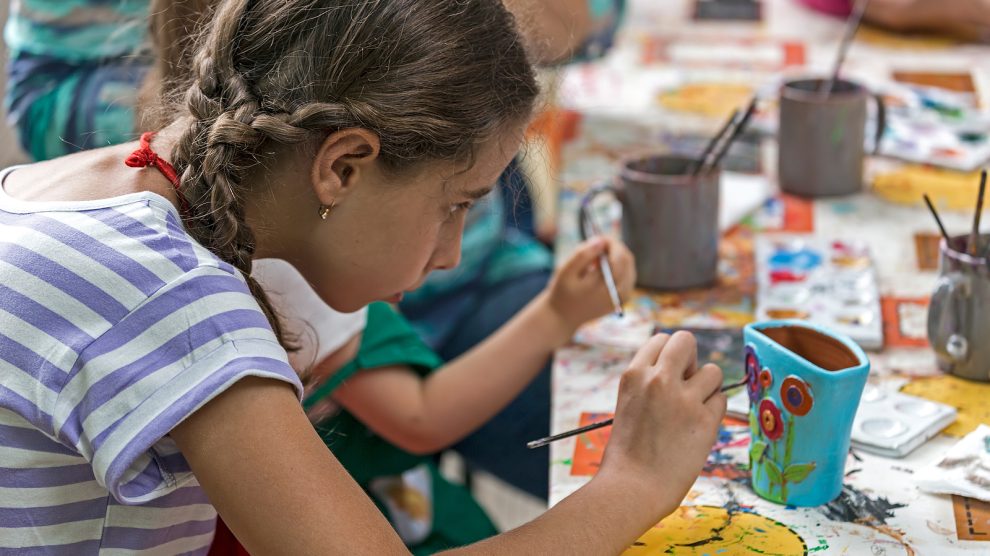The future of education in emerging Europe—and everywhere—demands a radical shift. A revolution, not reform. The question is: will we have the courage to start over?
Emerging Europe prides itself on being a region of transformation—adapting, innovating, and reinventing itself in the face of challenges.
But there is one area where transformation remains stubbornly elusive: education. While the world barrels into a digital, interconnected future, across much of the region (although there are exceptions, not least Estonia) the way we educate our children is stuck in the past and no longer makes sense.
The problem isn’t just that our schools are outdated. It’s that they are built on a foundation that no longer serves the needs of the modern world. Why are we still trying to tweak a system designed for the industrial age instead of building one designed for the digital age?
- It’s time to reinvent the way we approach technology
- Celebrating emerging Europe’s wave of innovation and reinvention
- Reinventing rural development in emerging Europe
Let’s imagine starting from scratch. What would education look like if we weren’t bound by the constraints of the current system? Would it have rigid, age-based classes, static subjects, and exam-focused outcomes? Or would it be a fluid, personalised journey where learning is constant, curiosity is rewarded, and skills evolve as rapidly as the world around us?
One thing is clear: the traditional classroom has outlived its usefulness. Rows of desks, lecture-based teaching, and standardised curricula might have worked when the goal was to prepare students for factory jobs.
But in a world where creativity, adaptability, and collaboration are essential, this approach feels almost archaic.
Second, education must prioritise reinvention and technology adoption as fundamental skills. Reinvention is about recognising when change is needed and having the tools to navigate it effectively.
In a fast-evolving world, the ability to pivot and embrace new paradigms is essential. Similarly, technology adoption goes beyond technical skills—it’s about developing the confidence to experiment with emerging tools and the resilience to adapt when technologies inevitably disrupt old ways of working.
These aren’t just professional skills; they are life skills, and education systems must treat them as such.
Experiential education
Education must also become deeply experiential. Instead of memorising historical dates or solving pre-set equations, students should engage in projects that reflect real-world challenges.
Imagine 10-year-olds working on sustainable energy prototypes or teenagers collaborating with AI to design cities of the future. Learning would no longer be confined to textbooks but would unfold in hands-on, immersive ways.
Technology isn’t just an add-on—it should be the backbone of this revolution. AI can personalise education, tailoring lessons to each student’s strengths and weaknesses. Virtual reality can bring history, science, and art to life in ways a textbook never could. Blockchain could track lifelong learning, making credentials dynamic and transferable.
But revolutionising education isn’t just about tools; it’s about culture. In emerging Europe, education has historically been steeped in hierarchy, with teachers as authoritarian figures and students as passive recipients of knowledge.
This dynamic must be flipped. Teachers should become mentors, guiding students as they navigate their own learning journeys.
Lifelong learning
Finally, the lines between school, work, and life must blur. The idea of learning ending at graduation is laughably outdated. Lifelong learning must be the norm, with education systems that allow people to dip in and out as their careers and interests evolve.
Emerging Europe has the opportunity to lead this revolution. The region’s tech-savvy youth, dynamic start-up ecosystems, and willingness to embrace reinvention make it an ideal testing ground.
But this will require courage—to question everything we assume about education, to tear down old structures, and to build something entirely new.
Tinkering at the edges isn’t enough. The future of education in emerging Europe—and everywhere—demands a radical shift. A revolution, not reform. The question is: will we have the courage to start over?
At Emerging Europe, we use an integrated approach centred around market intelligence to help organisations understand trends and strategically position themselves for success.
Learn how our solutions can help you thrive in the region:
Company and Services Overview | Strategic Advantage.

